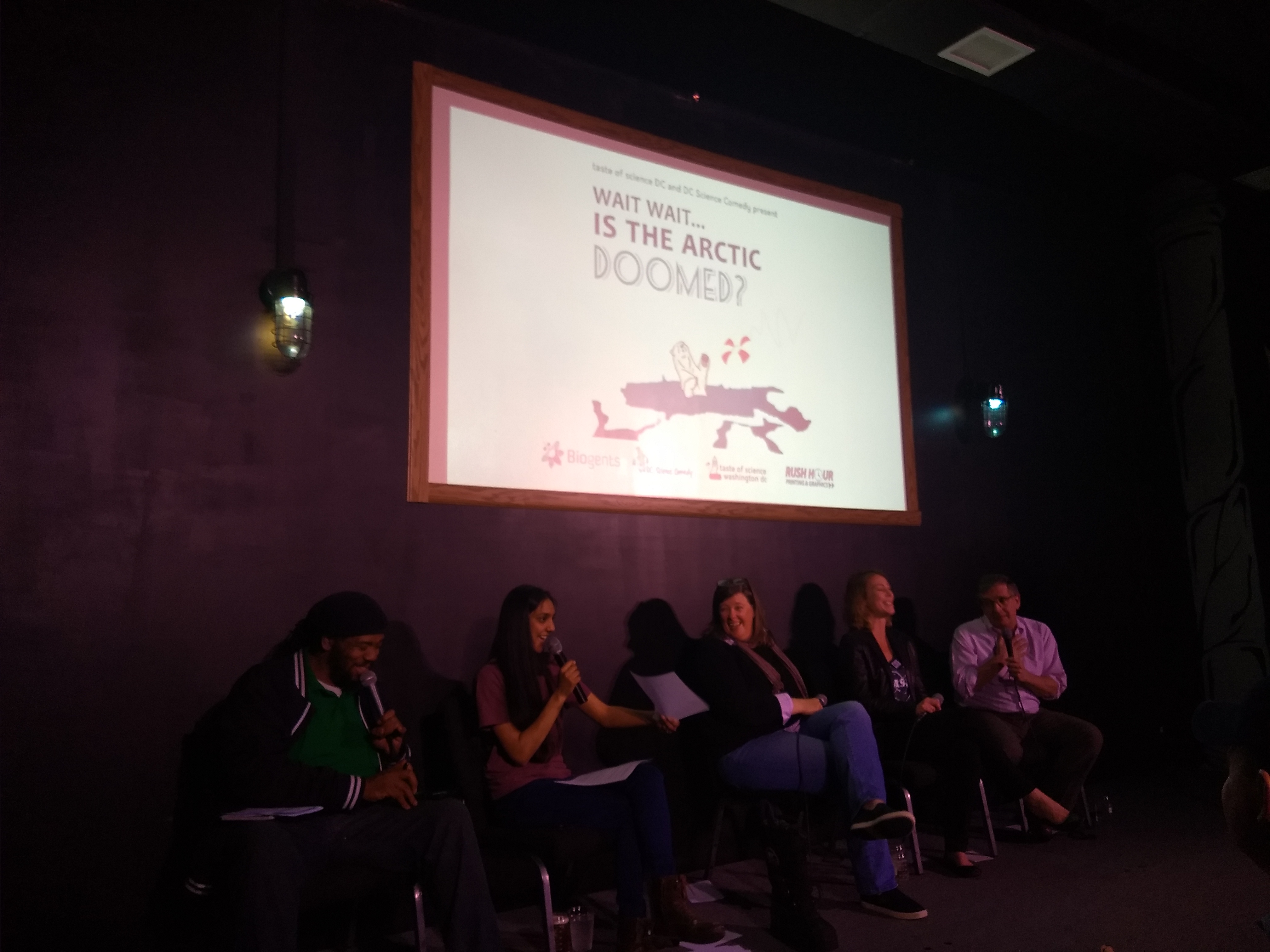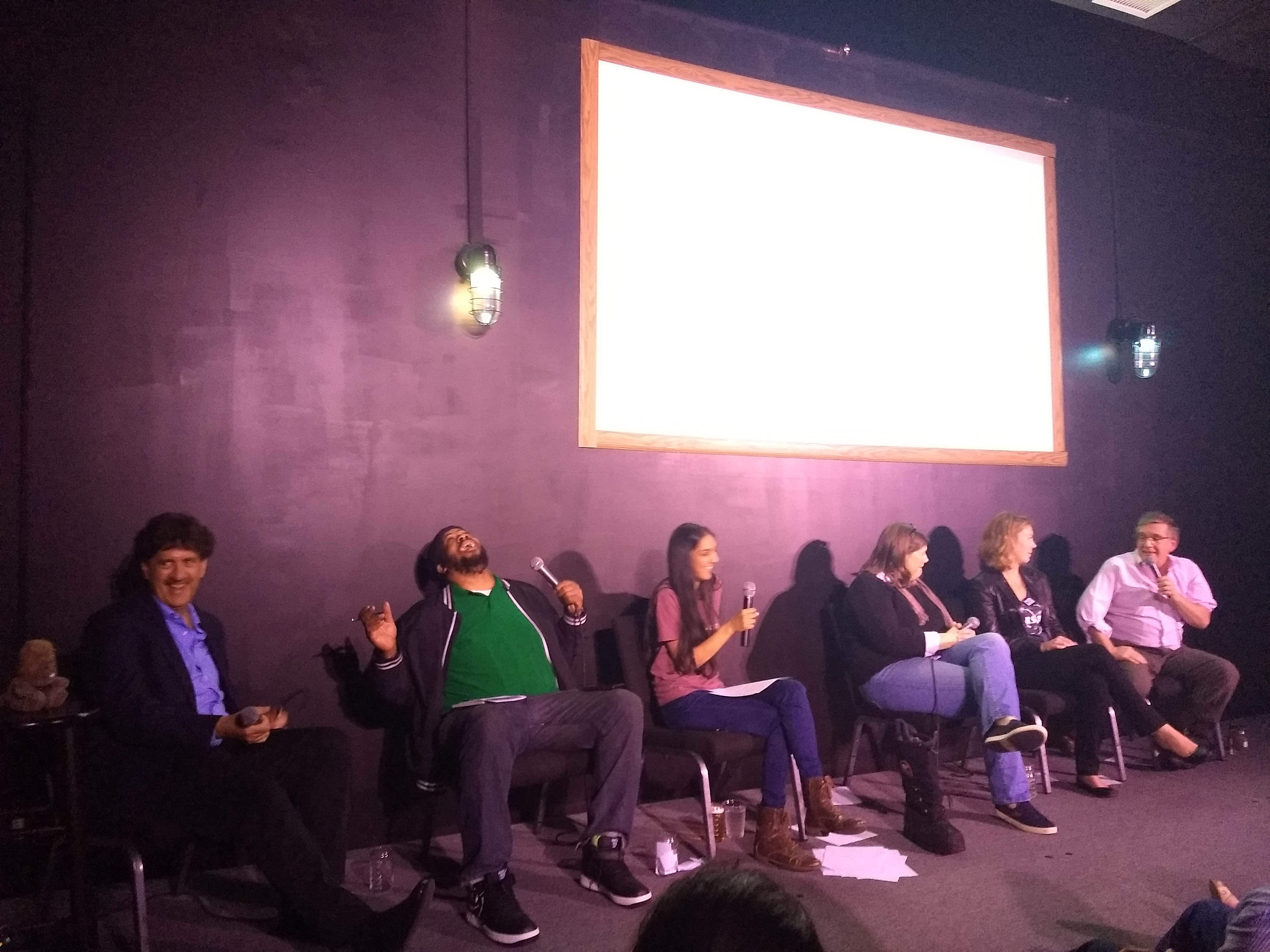Arctic scientists turn to comedy to discuss serious environmental changes
At a comedy show in Washington, D.C., three polar scientists used humor to discuss the rapid changes facing the Arctic — and what they mean for the world.

It can be difficult to communicate climate change’s effects on the Arctic. After all, the news often isn’t great: The region continues to see record-high temperatures and record-low ice, with the fallout from these changes threatening to span the globe and no signs of improvement on the horizon.
So on Sunday night, scientists in Washington, D.C., turned to comedy.
At an event called “Wait Wait… Is the Arctic Doomed?” — a playful riff on the popular NPR trivia show “Wait, Wait … Don’t Tell Me!” — three polar scientists joined two local comedians to take on environmental challenges in the Arctic and Antarctic.
Kelly Brunt from NASA offered insight into the region from her 11 trips to Antarctica and four trips to the Arctic, as well as her work on the ice-measuring project ICESat-2. Kimberley R. Miner, a research assistant professor at the University of Maine’s Climate Change Institute and a physical scientist at the Army Geospatial Research Laboratory, discussed the far-flung pollutants in the polar regions (and explained what DDT was to the comic hosts). John Farrell, executive director of the U.S. Arctic Research Commission, talked about his move from glaciologist to science policy advocate. And special guest David Balton, former ambassador for oceans and fisheries and a senior fellow at the Wilson Center, tried to answer trivia questions about famous people named after oceans.
Much of the evening was light and fun, but the lightning round for the panelists highlighted more serious issues in the circumpolar regions — tensions around the Northern Sea Route and Northwest Passage; China’s new nuclear icebreaker; thawing permafrost; coastal erosion; the new U.S. heavy icebreaker contract.
Although the event was structured to talk about Arctic science and policy in an accessible way, many in the audience already seemed to have a strong grasp on the region — including staff from the National Science Foundation’s Polar Programs and former staff at McMurdo Station.
One audience participant whose name was drawn at random turned out to be Bill Woityra, ice operations program manager at U.S. Coast Guard. Before he successfully completed a fill-in-the-blank limerick about MOSAiC, an international research expedition to study Arctic ice, he admitted that he himself was involved in the project — receiving one of the biggest laughs from the audience all night.
The overarching question of the evening — is the Arctic indeed doomed? — divided the scientists.
“Yes, the Arctic is definitely doomed, 100 percent,” said Miner.
Brunt had a more nuanced view. “The Arctic is a big network of all sorts of things,” she said. “There are going to be some winners and losers.” She agreed, however, that the outlook of sea ice was grim, pointing to the rapidly changing timescale of scientific predictions.
“We used to talk about loss of sea ice in the Arctic as something our grandkids would see, and now we’re talking about this as something our kids will see,” she said.
Farrell took an even longer view.
“The Arctic as a region is not going to be doomed at all, just like Earth’s not going to be doomed,” he said.
“The Earth’s going to be just fine. The people, on the other hand…” The audience laughed, and Farrell continued, “Keith Richards and cockroaches will survive just fine. It’s the rest of us I’m worried about.”
